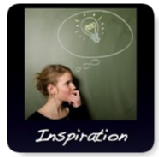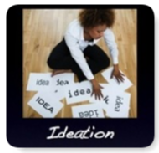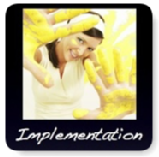All entries for Sunday 02 August 2009
August 02, 2009
What students bring to learning, Diana Laurillard
Follow-up to Teaching as mediating learning, Diana Laurillard from Inspires Learning - Robert O'Toole
This is the second part of my notes on reading Laurillard's 1993 book Rethinking University Teaching. This article records my own personal, non-peer-reviewed response.
Having identified the role of the university teacher as "mediating" learning, creating situations as challenges and learning opportunities appropriate to the non-everyday, specialised world of the subject domain, in the second chapter of Rethinking University Teaching1 Diana Laurillard poses the question what do students bring to learning? - what limiting and enabling factors does the student carry into the learning situations presented by the teacher? A most vital question.
The question is ideologically loaded. Recall that in her first chapter, Laurillard aimed for a more sophisticated situation-dependent socio-cognitive perspective appropriate to academic teaching. The possibility being that of the teacher bringing the students into the non-everyday, counter-intuitive world of the subject domain. Perhaps, with the right technique, the correct pedagogical design, the best use of the latest technologies, the academic teacher can help the student to become liberated from the mis-conceptions of everyday society, to become initiated into a higher thinking. How very Platonic.
Is this acceptable? Maybe. But Laurillard's argument moves too quickly and superficially to be convincing. I wonder if an element of utopianism is responsible for this gloss? 1993 was a bit like that. Here's the argument:
We do not have enough evidence of the existence of stable individual learning characteristics, whether motivation, learning style of study pattern to need to abandon the idea that a student’s approach is most meaningfully seen as being interactive with particular learning situations, and therefore context sensitive.2
Indeed, but no evidence is presented to support a context sensitive basis for determining learning outcomes.
This does not mean that there is not antecedent influence on what a student does during learning. The entire pre-history of their academic experience up to the time of a learning session can be implicated in what they do.2
Suggesting that we could view the student as being a complex assemblage of competing tendencies - a possibility that is only lightly pursued:
Moreover, part of Entwistle and Ramsden’s research programme showed that students’ approaches could also be influenced by their perceptions of teaching and assessment.2
So students perform as they think they are expected to perform - given what has happened to the education system since 1993, that's an idea that is easy to accept.
I would rather treat these approaches as being characteristic of the population as a whole, therefore, with all of them potentially available to all students as aspects of their interaction with the teaching, rather than make the much stronger assumption that they can be identified as personal characteristics of individuals.2
In what way is this conclusion justified? Other than ideological grounds - get the technology, fix the teaching, and the students will follow. That is, I argue, an unsatisfactory basis for recommendations on pedagogy and technology. I'm wondering is a critique of Laurillard might be a good place for my own thesis to begin.
Personally, I would rather be pragmatic, accepting that in some cases some students come to a lesson with some deeply embedded traits that limit (or rather focus) their capabilities. A learning situation, or indeed any other collaborative problem solving activity, is best approached by a team that blends various essential ways of seeing, thinking and acting. There might be, for example, Ten Faces of Innovation3. Tom Kelley presents a set of styles or patterns of behaviour that contribute to the design process. I argue that they are exactly the same patterns that contribute to any learning process (design process may be considered either to be the same as learning process or a subset of it - to be discussed further). Some people are more adept at some styles rather than others. Kelley's significant message is that we all need to understand the purpose and importance of each of the styles, in order to solve big problems more effectively. Importantly, his pragmatic attitude is underpinned by the principal that it is possible for an individual to recognize and understand different ways of thinking/doing without having to master each of them. I'm skilled as a "cross pollinator"4, I'm not a great "set designer"5, but I understand what set-designers do and how they are essential to problem solving.
Later in the second chapter, Laurillard argues for a "phemenographic" methodology in research and in teaching:
...teachers need descriptions of the ways students conceptualise a topic to be able to challenge their fundamental misconceptions. 6
That does not seem to be a controversial aim. It's supported by the further claim that students need to be able to effectively communicate their conceptions, and the more challenging ambition that students should have a self-reflecting "epistemological" awareness of their own ideation processes, allowing them to be critical and in turn enabling the phenomenographically minded tutor to help them to be critical, overcoming misconceptions.
I would not disagree with this in theory, but am less certain of its feasibility. My suspicion is that Laurillard, and perhaps other phenomenographists, seriously underestimate the difficulties inherent in getting students to represent their own cognitive processes, and consequently in gaining an epistemological self-awareness. This is probably the result of an over-simplified conception of how concepts are formed, held, changed, activated and communicated. Concepts arise and work within environments that are messy, quick, non-procedural, social, materially dependent and distrubuted. That's why we have them. They are coping mechanisms, means for "cognitive off-loading"7, taking short-cuts, schematising, reacting - dealing with the conflicting demands of being a hunter (focussed problem solving) gatherer (opportunistic horizon broadening). Humans don't want to talk about their concepts, they want to use them.
This oversimplification is noticable in the following argument:
A conception is not a property of an individual in the way a nose is; it is an aspect of their behaviour in the world and their experience of it. 8
Partly true. But it's far more than that. A concept can be carried by an individual, and reactivated. But as Clark7 has argued, they are closely dependent upon material and technical artefacts (enabling concept formation and cognitive off-loading). An aspect of a persons behaviour? Trivially true? As much as a person's behaviour is an aspect of the concept. The final statement, however, might be very wrong - I would argue that concepts structure experience, but that the concepts that matter, the ones that do all the work, are rarely attended to within the field of experience. Broken concepts sometimes become apparent. And if you follow Husserl et al, phenomenological methods (epoché) can lead the self-reflective thinker into an un-mediated experience of their own concepts. Other philosophers seek out more empirical methods. Deleuze and Guattari, for example, see concepts as a special type of self-replicating machine. The machine effects an empirically observable diagramattic trace in the world resulting from its variation and propogation. We can trace and map out that effect. Not phenomenography, but rather epistemography.
Laurillard moved to conclude:
With that kind of epistemology [phenomenography] it is impossible to expect that we can discover anything worthwhile about conceptions by looking at traces of how people carry out tasks, such as their written performance on subtraction problems. 8
I don't see that conclusion following from the arguments and evidence provided. And i'm certainly not convinced that an approach that relies upon self-reflective reporting by the student can be any more reliable than observing their output on paper.
This gives us access only to their behaviour not their experience. Without careful interviewing and observation it is impossible to interpret students' actions correctly. 8
I'm challenging the claim that access to experience, the live and timely lived experience of the student, can be obtained to give us reliable and unmediated evidence about cognitive processes. For philosophers and cognitive scientists, this is a familiar problem. The answer is, I believe, to get a range of empirical inputs diagrammed and triangulated, and to abstract theories and predictions about thought that may then be tested. A methodological pragmaticism.
___________
1 Laurillard, D. Rethinking University Teaching: a framework for the effective use of educational technology, Routledge, 1993.
2 ibid p.34
3 Kelley, T. & Littman, J. The Ten Faces of Innovation: Strategies for Heightening Creativity, Profile Books, 2008.
4 "Cross-pollinators can create something new or better through the unexpected juxtaposition of seemingly unrelated ideas or concepts." ibid p.68
5 "Set Designers look at everyday as a chance to liven up the workplace. They create collaborative spaces for "neighbourhood" teams. They guage how space behaves and make subtle adjustments to keep it responsive to your shifting needs." ibid p. 196
6 Laurillard, D. Rethinking University Teaching: a framework for the effective use of educational technology, Routledge, 1993, p.47.
7 "The idea, in short, is that advanced cognition depends crucially on our abilities to dissipate reasoning: to diffuse achieved knowledge and practical wisdom through complex social structures, and to reduce the loads on individual brains by locating those brains in complex webs of linguistic, social, political, and institutional constraints." Clark, A. Being There: Putting Brain, Body, and World Together Again, MIT Press, 1997, p.180.
8 Laurillard, D. Rethinking University Teaching: a framework for the effective use of educational technology, Routledge, 1993, p.36.
 Robert O'Toole
Robert O'Toole

 Please wait - comments are loading
Please wait - comments are loading



